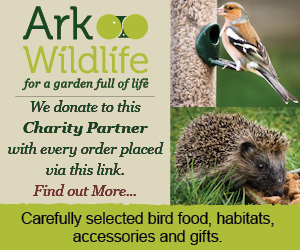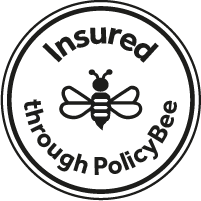FEEDING HEDGEHOGS
NEVER, NEVER, NEVER, NEVER, EVER give a hedgehog milk
OK so we all know hedgehogs eat nothing but slugs and snails. RIGHT?
WRONG!
Slugs and snails and Puppy Dog tails
Your average Hedgehog is a walking dustbin. They will eat pretty much anything that their little noses manage to sniffle out. They have an incredible sense of smell and can detect a beetle or an earthworm under 3 inches of soil. Spend time on a summer evening watching and you'll see even the babies digging like fury to unearth some appetising morsel. Now please note, I said appetising.
At this point we have to consider, just how appetising is a slug? If you've ever accidentally grabbed one whilst gardening you will be familiar with what is known round here as "YUK! Slug Juice!", that awful slimy stuff that you just can't get rid of once it's on your hands. Now with that in mind, would you fancy eating one? No, me neither and funnily enough, hedgehogs prefer other things too. Not that those other things are any more inviting to us, but then we're not hedgehogs.
The food chart below shows the natural diet of a hedgehog and slugs and snails feature way down the list. Don't get me wrong, Hogs will eat them but the less they eat the better. Why? Because we humans like to remove slugs from our gardens and the way we tend to do that is by liberally sprinkling slug pellets around. The slugs eat it, the hedgehog eats the slug, and the rescue centre ends up with one very sick hog.
Slugs also carry the intermediate stage of lungworm. When a hog picks this up it can be life threatening, resulting in pneumonia and rapid death.

Original data from: Yalden, 1976 (East Anglia); Grosshans, 1983 (N.W. Germany); and Wroot, 1984 (Middlesex).
Hogs hate people called Alan, Charlie and Tommy...... oh, and Diarmuid
Hedgehogs are having a very hard time finding food these days. Whilst I'm sure Alan Titchmarsh and his ilk are very nice people, their garden make-over programs and the consequent miles of gravel, decking and non-native plants have caused a massive decline in native insects for our wildlife to eat. You can do a lot to rectify this by feeding hedgehogs in your garden. It's not difficult. all you need to do is put out some cat or dog food, specialist hedgehog food (if you're a rich person), and plenty of fresh water.
Hedgehog Bottom Hot Feeding Tip
Put out a dish of cat biscuits, hedgehog biscuits or meaty dog food each night along with a dish of fresh water.
If there are hedgehogs around they will come to know where there is a reliable source of food. If you want to keep them around make sure you do this every day, you could supply a feeding station and maybe a house as well. If you're lucky one may stay.

A word about mealworms
Please do not give them to hedgehogs. High in Phosphorus, low in calcium. The parathyroid tries to balance both out in the blood and takes the calcium from teeth and bones causing metabolic bone disease (MBD), resulting in fractures and deformities especially in developing little ones.
Stuff that's not great...
There are certain things which are either dangerous or going to cause serious knock-on effects for hedgehogs. All of these should be avoided.
- Milk and milk based products
- Positively dangerous. Hedgehogs, and most other animals after weaning, are lactose intolerant. The resulting diarrhoea can kill.
- Bread, cakes, biscuits
- All stodge. Some high sugar. No nutrients. Fills them up and stops them looking for nutritious food.
- Peanuts and Sunflower hearts
- As with Mealworms, too high in phosphorus and too low in calcium. Peanuts can also get stuck across the roof of a hedgehog's mouth preventing it eating.
Taking it further...
If you want to take this further, you can set up a feeding station, or further still, bone up on what to feed a hoglet that appears to be in trouble, until you can get expert advice from a carer or vet.
Please be aware that hoglets are not straight forward to care for. Many things can go wrong along the way and even with the support of a good vet, it's extremely easy to lose the little ones.
No matter how much you believe you can raise them, I would beg you to seek expert advice. If you go to a good carer they will normally assess the hoglets and then agree a care regime with you. It does not automatically mean you will have to give the animals up. It may be they will be given straight back along with a care sheet, or possibly kept at the rescue for a few days and then returned to you if that's what you want.







